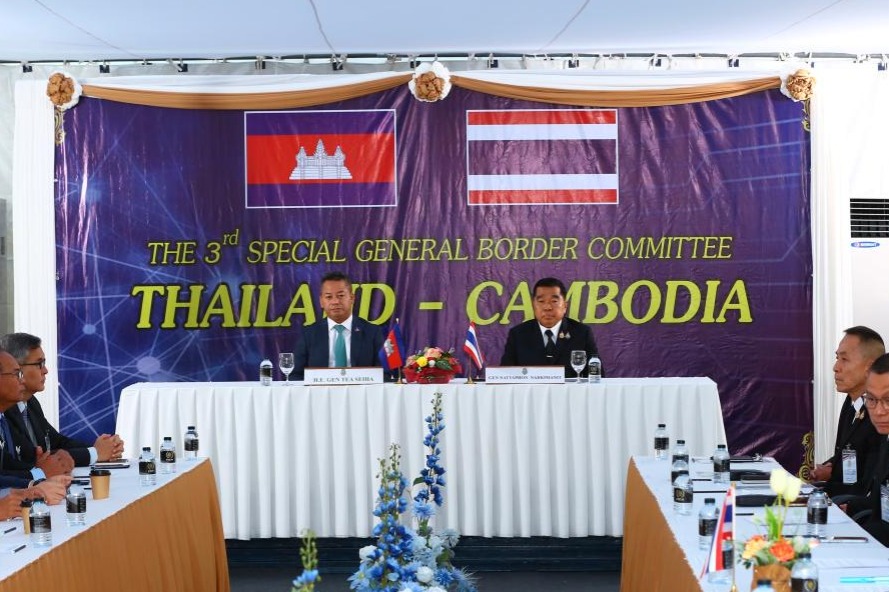Stronger UN can be beacon of hope again


In 2000, I was Singapore's ambassador to the United Nations when the UN General Assembly unveiled its Millennium Development Goals. Kofi Annan was UN secretary-general. Bill Clinton was US president. It was a time of great hope. Everyone believed the UN represented the only vehicle for humanity to come together and cooperate.
By contrast, even though many leaders, including President Xi Jinping and US President Donald Trump, addressed the UN General Assembly by video at the special commemoration of the UN's 75th anniversary on Monday, the air of gloom surrounding the UN was palpable.
Few believe today that the UN still functions as a beacon of hope. This conventional wisdom of pessimism on the UN is wrong. If there is one global organization that has become indispensable for humanity, it is the UN. Why so? COVID-19 has sent humanity a clear metaphysical message.
All of humanity is now in the same boat. In the past, when 7.7 billion people lived in 193 separate countries, it was as though they were living in 193 separate boats. Now they live in 193 separate cabins on the same boat. This is why COVID-19 could spread from one end of the planet to the other in a matter of months.
There is only one problem with our global boat. We have governments taking care of each cabin. We have no strong institutions of global governance to manage our global boat as a whole.
The only organization that enjoys the universal representation of humanity and can provide such global leadership is the UN. For a small, shrinking, interdependent planet Earth, the UN has become an indispensable organization.
Still, it faces challenges. The most powerful country, the United States, has become disillusioned with the UN. At the height of COVID-19, when humanity needed to cooperate to fight it, the US left the World Health Organization (after leaving UNESCO earlier). It has paralyzed the World Trade Organization.
Can we persuade the US to support the UN again? Yes, we can.
In 2003, then US President Clinton gave a powerful speech at Yale University. He said that if the US was going to be the No 1 country forever, it could continue behaving unilaterally. Yet if the US could conceive of becoming No 2, it would be in the long-term national interest of the US to "create a world with rules, partnerships and habits of behavior" that the US would like to live in if and when it becomes No 2. In due course, US pundits and policymakers will come to accept the wisdom-contained in Clinton's advice.
Yet the UN can't rest on its laurels. It needs to constantly reinvent itself. As the new rising power, China can help to provide some quiet leadership in UN reforms.
Every community needs a parliament where members can share their views, discuss, compromise and reach a consensus. The only functioning global parliament is the UN General Assembly.
Working with other key stakeholders such as the European Union, the African Union, Latin America, India and the Association of Southeast Asian Nations, China can help to quietly revive the UN General Assembly.
Similarly, the UN Security Council needs reform. It was wise of the founding fathers of the UN to give the great powers a veto in the Security Council, as it gave them a powerful stake in the UN.
That is why the US has not left the UN, even though it left the League of Nations, the first intergovernmental organization whose mission was to maintain world peace.
However, the veto power was intended for the great powers of today and tomorrow, not the great powers of yesterday. UN Security Council reform is difficult. The biggest obstacle is lack of agreement on who should be the new permanent members.
In my book The Great Convergence, I proposed a new formula of seven permanent members, seven semipermanent members and seven elected members. This 7-7-7 formula would bring in India, Brazil and an African state as permanent members.
Getting India in is key. As Martin Wolf of the Financial Times said, "Exhausted by the burden of its pretensions, the United Kingdom should soon offer its seat on the Security Council of the United Nations to its former colony."
Finally, the finances of the UN need to be fixed. The EU members believe in the UN, but they have been strangling the necessary funding for the UN because they believe they pay too much. Unwisely, the EU led the charge to reduce mandatory contributions to the WHO from 62 percent in 1970-71 to less than 20 percent today.
To address these grievances of the EU, we must reduce the percentage of Western funding to the UN. The Western European and Other States Group, a UN regional group, represents only 12 percent of the world's population but contributes more than 50 percent of the UN budget. This should stop. Asians, who represent over 50 percent of the world's population, should pay more.
In his speeches this week, President Xi has announced generous voluntary contributions to key UN projects. It would be good for other Asian states to follow China's example in announcing their willingness to contribute more to the UN system.
This could strengthen the UN and make it a beacon of hope once again. Asians can then feel proud that in the 21st century, the Asian Century, they led the way in reviving the UN.
The author is a distinguished fellow at the Asia Research Institute, National University of Singapore. He is also a former president of the United Nations Security Council. The views do not necessarily reflect those of China Daily.

































